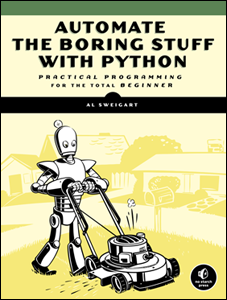Reading 00: Hardware, Programming
Everyone:
Welcome to CSE 10001 Principles of Computing, which (as the syllabus states) is a course that "explores computer science by examining the questions of what is computing, how do we compute, how do different aspects of modern computing technology work, and how does computing impact the individual and society." In this course, we will study how modern computing hardware, software, and communications function, and we will utilize the Python programming language to explore and practice foundational programming concepts such as syntax, variables, conditional execution, iteration, functions, data structures, and algorithms.
TL;DR
For this week, you need to read about what's in a computer and then a general overview of programming in Python. Afterwards, you will need the quiz below.
Course Overview
Today, computing is everywhere and touches almost every part of modern life. From automation to disruptive industries, social media to fake news, ubiquitous communication to surveillance, personal assistants to data mining, and so on, it is now paramount that the everyone has a basic understanding of the technological concepts and principles that power our digital world.
In this class, we will explore the foundational ideas behind computer science by examining these three fundamental components of modern computing:
-
Hardware: We will examine the idea of a universal digital representation of information and learn how data is represented using binary codes and how physical devices use this representation to compute.
-
Software: We will utilize the idea of a universal digital processor by exploring different programming concepts such as data structures and algorithms.
-
Communications: We will study the idea of a universal digital network, learn how the Internet works, and discuss the ramifications of widespread digital communication.
In addition to examining these fundamental concepts and principles, we will also develop practical programming skills by utilizing the Python programming language to develop applications as a spell checker, image filter, website, and password cracker. Before tackling these programs, however, we will first learn the basics of programming by studying syntax, expressions, conditional execution, iteration, functions, algorithms, and data structures.
Each week there will be a Reading assignment meant to give you a context and reference into what we will be covering that upcoming week and a Lab assignment that will provide you an opportunity apply the material in (hopefully) interesting ways.
To help with completing the labs, the class will meet in the computer room in B019 Fitzpatrick Hall each Friday. This is so students can begin work on the week's lab with the assistance of the instructors and teaching assistants and receive more immediate and direct programming guidance and instruction.
Finally, there will be two exams to assess your mastery of the material.


Readings
The readings for Wednesday, January 15 are:
-
Understanding the Digital World:
- Introduction
- Hardware
1. What's in a Computer?
The Hands-on Imperative
To get the most out of your reading, you should be typing commands into a Python interpreter and playing around with the things you reading.
Passively reading will not be as fruitful as actively reading and trying out things you are exploring.
Quiz
Once you have completed the readings, fill out the following quiz:
Notre Dame Login
To view and submit the form below, you need to be logged into your Notre Dame Google account. The easiest way to do this is to login to gmail.nd.edu and then visit this page in the same browser session.
Note, you can view the initial quiz score after you submit your responses. If you get any answers wrong, you can go back and adjust your answers as necessary. After the deadline has passed, any wrong answers will be given partial credit.